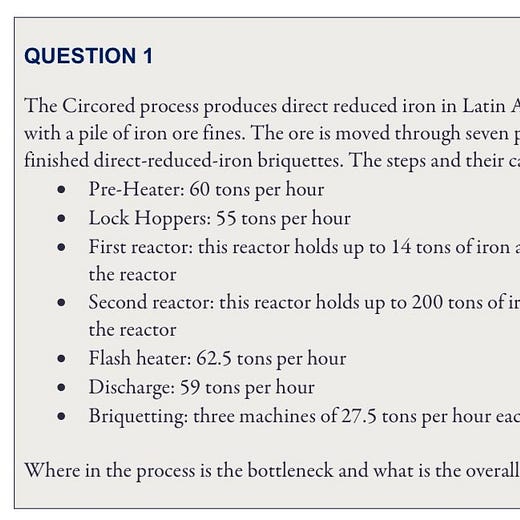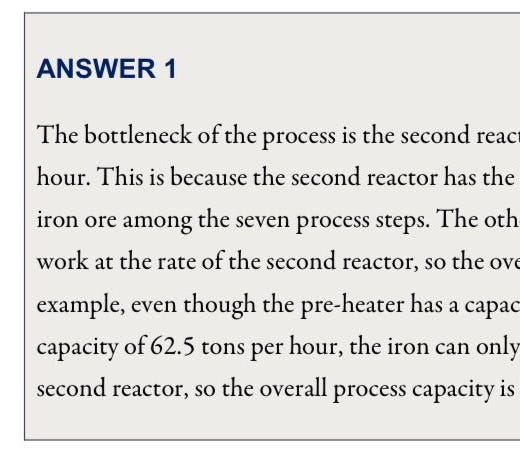The Long Game 139: Loss of Epigenetic Information as a Cause Aging, Quitter's Day, Intuition vs. Execution, TikTok
📁 Startups are for people who can’t not do them, Zone 2 Training, ChatGPT Passes Medical Exam, and Much More!
Hi there, it’s Mehdi Yacoubi, co-founder at Vital, and this is The Long Game Newsletter. To receive it in your inbox each week, subscribe here:
In this episode, we explore:
Loss of epigenetic information as a cause of mammalian aging
Quitter’s day and consistency
intuition vs. execution
Startups are for people who can’t not do them
TikTok
Let’s dive in!
🥑 Health
Loss of epigenetic information as a cause of mammalian aging
Some aging news!
This paper was recently published:
Cellular responses to double-stranded DNA breaks erode the epigenetic landscape
This loss of epigenetic information accelerates the hallmarks of aging
These changes are reversible by epigenetic reprogramming
By manipulating the epigenome, aging can be driven forward and backward
Summary
All living things experience an increase in entropy, manifested as a loss of genetic and epigenetic information. In yeast, epigenetic information is lost over time due to the relocalization of chromatin-modifying proteins to DNA breaks, causing cells to lose their identity, a hallmark of yeast aging. Using a system called “ICE” (inducible changes to the epigenome), we find that the act of faithful DNA repair advances aging at physiological, cognitive, and molecular levels, including erosion of the epigenetic landscape, cellular exdifferentiation, senescence, and advancement of the DNA methylation clock, which can be reversed by OSK-mediated rejuvenation. These data are consistent with the information theory of aging, which states that a loss of epigenetic information is a reversible cause of aging.
Some called it a breakthrough validating Sinclair’s information theory of aging, while others claimed that it didn’t prove that.
I’m not a scientist, nor have I studied deeply the paper & the rebuttal, but I, unfortunately, feel that, as in many other spaces, egos, sunk cost fallacies, and personalities get in the way of scientific progress.
The fight against aging is & always be worth fighting for (even if some disagree.)
🌱 Wellness
🚶 Quitter’s Day and Consistency
Today is quitter’s day, a term coined by Strava to describe the day on which people who have made fitness resolutions are most likely to give them up.
As it’s getting hard to stick to your resolutions, it can help to lower the bar to make sure the consistency stays high. That’s why walking or other low-intensity activities are so good. It’s still physical activity, but the barrier to doing it is very low.
From Fitt Insider:
As the pandemic closed gyms and locked us indoors, a daily walk offered a reprieve — and the habit is sticking.
Walkers logged over 668M miles on Strava last year, a growth of about 2x YoY.
A trend on TikTok, the #hotgirlwalk hashtag has notched over 51M views on the platform.
Walking app Go Jauntly saw its membership rise by 80% since the beginning of the pandemic.
Take a stroll. Walking stimulates circulation, increases serotonin, and boosts creativity, improving a host of physical and mental health factors. Walking just 30 minutes every day is connected to a 19% drop in coronary heart disease risk, while a daily one-hour walk lowers the risk of major depression by 26%.
And every minute counts — if adults added a mere 15 minutes of walking a day, analysts estimate that the global economy could grow by a whopping $100B a year.
And from Kierkegaard:
Above all, do not lose your desire to walk: Every day I walk myself into a state of well-being and walk away from every illness; I have walked myself into my best thoughts, and I know of no thought so burdensome that one cannot walk away from it.
🧠 Better Thinking
⚖️ intuition vs. execution
I liked this piece on intuition vs. execution.
I don’t know why, but I find that framing to be such a relief: I can be right about something, but I still have to approach it correctly. Intuition does not absolve me from execution. I think there’s a lot of advice that goes, what’s meant for you will find you. And I really, truly believe that it does. But that doesn't mean that everything is just going to work out without complications. When I decided to start writing I strongly felt it was the right choice, but I also didn’t fully understand how difficult it would be. When I met several of my close friends I knew we would be important to each other, but I didn’t know how the relationships would unfurl. And when it comes to dating, it’s always that Margaret Atwood line: “Longed for him. Got him. Shit.”
A while ago I read a metaphor that went, Getting into a relationship is like buying a car. Being in a relationship is like driving the car. For some reason it’s always stuck in my head. Here’s what I know now: wanting the car doesn’t mean you’ll end up buying the car. Buying a car doesn’t mean that you’ll like driving the car. So if you have an intuition about something and you really want to prove yourself right, be prepared to live with the consequences of following through.
⚡️ Startup Stuff
📁 Startups are for people who can’t not do them
A simple idea/tweet for this week, that I think is missing from a lot of the discussions around startups. Here’s the idea: startups are not made for everyone. Actually, they’re made for a minority of people “who can’t not do them.”
There’s a lot of romanticization of startup life, but this is far from real life. Don’t get me wrong, I love building a startup and wouldn’t do anything else, but I must admit that many people would be deeply unhappy in such environments. Not for everyone, and that’s fine!
The only people who should found a startup are those that can’t be convinced otherwise 😂
Pair with: The Trouble with Optionality (TL;DR: no matter what you want to go for, just go for it)
📚 What I Read
🦠 TikTok May Be A Chinese Superweapon
If you read one thing this week, make it this article.
Last month FBI Director Chris Wray warned that TikTok is controlled by a Chinese government that could “use it for influence operations.” So how likely is it that one such influence operation might include addicting young Westerners to mind-numbing content to create a generation of nincompoops?
The first indication that the Chinese Communist Party is aware of TikTok’s malign influence on kids is that it’s forbidden access of the app to Chinese kids. The American tech ethicist Tristan Harris pointed out that the Chinese version of TikTok, Douyin, is a “spinach” version where kids don’t see twerkers and toilet-lickers but science experiments and educational videos. Furthermore, Douyin is only accessible to kids for 40 minutes per day, and it cannot be accessed between 10pm and 6am.
Has the CCP enforced such rules to protect its people from what it intends to inflict on the West? When one examines the philosophical doctrines behind the rules, it becomes clear that the CCP doesn’t just believe that apps like TikTok make people stupid, but that they destroy civilizations.
Land and Wang may be right about the illness, but they’re wrong about the cure. Democracies are vulnerable because there’s no one controlling their advancement, but autocracies are vulnerable precisely for the opposite reason: they’re controlled by people—which is to say, by woefully myopic apes. China is currently suffering from the myopia of Xi’s zero-covid policy, which has ravaged the country’s economy. We’d be unwise to exchange the tyranny of dopamine for the tyranny of despots.
That leaves only one solution: the democratic one. In a democracy responsibility is also democratized, so parents must look out for their own kids. There’s a market for this, too: various brands of parental controls can be set on devices to limit kids’ access (though many of these, including TikTok’s own controls, can be easily bypassed.)
But ultimately these are short term measures. In the long term the only way to prevent digital dementia is to raise awareness of the neurological ruin wrought by apps like TikTok, to expose their ugliness so they fall out of fashion like cigarettes. If the weakness of liberalism is its openness, then this is also its strength; word can travel far in democracies.
We’ll surely sound like alarmists; TikTok destroys so gradually that it seems harmless. But if the app is a time-bomb that’ll wreck a whole generation years from now, then we can’t wait till its effects are apparent before acting, for then it will be too late.
The clock is ticking.
Tik. Tok. Tik. Tok…
🏛 He may have invented one of neuroscience’s biggest advances. But you’ve never heard of him
If this isn’t a reason to put your papers online (like on arXiv) and not rely on gatekeepers like Nature, and I don’t know what is.
The next revolution in medicine just might come from a new lab technique that makes neurons sensitive to light. The technique, called optogenetics, is one of the biggest breakthroughs in neuroscience in decades. It has the potential to cure blindness, treat Parkinson’s disease, and relieve chronic pain. Moreover, it’s become widely used to probe the workings of animals’ brains in the lab, leading to breakthroughs in scientists’ understanding of things like sleep, addiction, and sensation.
So it’s not surprising that the two Americans hailed as inventors of optogenetics are rock stars in the science world. Karl Deisseroth at Stanford University and Ed Boyden at the Massachusetts Institute of Technology have collected tens of millions in grants and won millions in prize money in recent years. They’ve stocked their labs with the best equipment and the brightest minds. They’ve been lauded in the media and celebrated at conferences around the world. They’re considered all but certain to win a Nobel Prize.
There’s only one problem with this story:
It just may be that Zhuo-Hua Pan invented optogenetics first.
🏃♀️ Zone 2 training - The Basics
This is a good piece about zone 2 training.
Zone 2 training - also known as base or aerobic training - involves doing (typically) longer workouts with less intensity. For most people, including myself, Zone 2 equates to a very slow running pace (with periods of walking) that you can sustain for a long time (think 45+ minutes) all while comfortably having a conversation.
This type of training has been studied extensively in the world's most elite athletes - from runners, to cyclists and beyond.
Time and time again, the conclusion has been as follows:
The athletes who modify their training schedules to spend ~80% of their training time in Zone 2 tend to outperform those who spend the bulk of their time at higher intensities.
This is counterintuitive given how easy it feels and the "no pain, no gain" fitness culture that has proliferated for most of our lives — but the results have been so astonishing that Zone 2 training has become the standard for many of the world's most elite athletes.
Despite these athletes having figured this out some time ago, weekend warriors like you and me mostly haven't caught on yet. And that’s crazy because the benefits to everything from metabolic health to longevity can potentially be immense for us normal folk.
Studies show that amateur runners tend to spend 60%+ of their training time at moderate intensity (that’s Zone 3+). In other words, we're actually going too fast. We are overtraining, when what we really need is to go slower and longer.
Does this mean we should NEVER go fast? No, based on numerous studies in a variety of scenarios, we should aim for high intensity workouts for ~20% of our cardio sessions. But high intensity means high intensity. It means getting yourself breathless. It means testing that max heart rate. It means leaving it all out there. Are you doing THAT 20% of the time you run or cycle? I’m not sure I am.
While many of us *think* we are doing a great job keeping ourselves in good cardiovascular shape, almost all of us are spending the bulk of our cardio time in the so-called "garbage zone."
We’re going too fast and too hard on low intensity days (ideally 80% of cardio workouts) and too slow or not hard enough on high intensity days (ideally 20%) of cardio workouts). We’re missing out on both ends.
Pair with: Training intensity distribution
🧠 Nobody is a Prisoner of Their IQ
Though still controversial, discussions around IQ and its importance for success & achievement are now mainstream. However, even if IQ is important, it’s far from being the only thing that matters.
A meta-analysis of 23 studies found that at the individual level, intelligence has no relationship with happiness. Knowing the IQ of two random people in the same country tells you nothing about whether one is happier than the other. And if you believe Richard Hanania, today the high IQ elites are more miserable than everybody else (yes, the elites are smarter than average—but often smart people use their intelligence to raise their own status rather than seek the truth).
The psychologist and intelligence researcher Russell T. Warne points out:
“Although below-average intelligence makes life more difficult for a person, other traits or life circumstances can compensate for having a lower IQ. Having a supportive family, higher socioeconomic status, motivation, conscientiousness, cultural influences that discourage unfavorable behaviors, determination, and many other characteristics can compensate for a. lower level of intelligence. Nobody is a prisoner of their IQ.”
🍭 Brain Food
🥼 Performance of ChatGPT on USMLE: Potential for AI-Assisted Medical Education Using Large Language Models
Some ChatGPT news: it has passed the United States Medical Licensing Examination (USMLE).
We evaluated the performance of a large language model called ChatGPT on the United States Medical Licensing Exam (USMLE), which consists of three exams: Step 1, Step 2CK, and Step 3. ChatGPT performed at or near the passing threshold for all three exams without any specialized training or reinforcement. Additionally, ChatGPT demonstrated a high level of concordance and insight in its explanations. These results suggest that large language models may have the potential to assist with medical education, and potentially, clinical decision-making.
It’s unclear what the future holds for so many jobs.
Additionally:
🎥 What I’m Watching
💔 Why Modern Dating is Broken
This is a long but excellent video on the state of modern dating. Whatifalthist really has a unique way of understanding society and linking things together.
🤔 “He Has To Be A Millionaire”… Asking Women About Male Income
This is a good explanation of what is usually meant when people say that unrealistic expectations are rampant these days.
🔧 The Tool of the Week
🦵 Elbow & Knee Sleeves
I used to use elbow & knee sleeves in the past, but I stopped two years ago because of a mix of losing them and thinking I don’t need them anymore. But recently, I changed my mind, and I now value anything that will help prevent overuse and minor pains & aches. These are good options.
🪐 Quote I’m Pondering
But I'll tell you what hermits realize. If you go off into a far, far forest and get very quiet, you'll come to understand that you're connected with everything.
— Alan Watts
👋 EndNote
Thanks for reading!
If you like The Long Game, please share it on social media or forward this email to someone who might enjoy it. You can also “like” this newsletter by clicking the ❤️ just below, which helps me get visibility on Substack.
Until next week,
Mehdi Yacoubi









